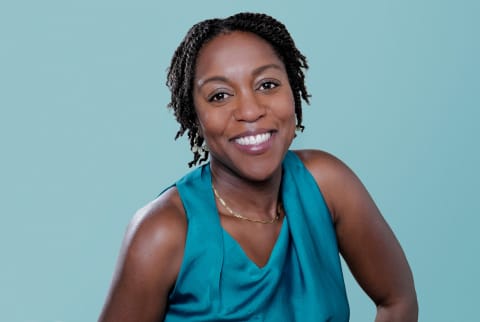Advertisement
We Can't Run On An Empty Tank: 4 Ways To Heal As You Fight For Social Justice


In a time of deep, civil unrest (not to mention a pandemic), self-care has perhaps never been so important. You might brush off a morning meditation or virtual get-together with a simple thought: There are more important things to be focusing on right now. And you're right—there are. But that doesn't mean you should let self-care fall through the cracks.
In fact, according to registered dietitian Maya Feller, M.S., R.D., CDN, an effective healing practice actually strengthens the fight for social justice. "If your tank is empty, you can't be a good ally to yourself or to your neighbor," she tells me on the mindbodygreen podcast. In other words, we have to make sure our energy remains strong—that way, we can make sure anti-racism remains a movement, not a moment.
Of course, everyone's healing process looks different—what may work for certain people may not necessarily "fill you up" in the same way. You should always find what works best for your own needs, but if you're in need of inspiration for self-healing, Feller has some helpful tips to keep in mind. Here's how to practice self-care as you work toward a better world:
Make time for self-reflection and breath.
Picture the anti-racism movement as a never-ending cycle of sorts: You shift from learning and listening to doing the necessary work to taking time to reflect and breathe. Take it from Feller, who says we should "create the space to learn, unlearn, and find deep spiritual practice in a calm way." That doesn't happen if you're constantly in a head space of go, go, go.
It's OK to take time for your breath; in fact, it's essential for keeping the anti-racism movement strong. Honest self-reflection is one of the core tenets of acting in allyship, anyway.
Check in on those who lift you up.
Feller urges everyone to find an inclusive community that feeds your energy. "Pre-COVID, I would seek sanctuary and refuge in a radical church in Brooklyn," she shares about her own experience. Of course, gatherings of the sort are put on hold for the time being, and some of her closest friends in that community are older, at-risk individuals. However, Feller makes sure to call her confidantes every single week, just to check in—and it lifts her up. Research shows us time and time again how important social connections can be for your health; for Feller, she's able to similarly seek comfort just by chatting with others who lift her spirits.
Ground yourself—literally.
That's not to say Feller hasn't found other ways to take refuge in a sometimes overwhelming, overbearing world. She now takes the time to ground herself, quite literally: "I try to find stillness by spending time in the grass, taking my shoes off, and spending time planting or gardening." It's no question that nature has profound effects on our mental (and physical!) health as well; even something so simple as walking barefoot in the grass can help you feel more connected to the earth.
So kick off your shoes and spend some time in the great outdoors, if you can. Even city dwellers can find a patch of earth and revel in the simple pleasures that warm, sunny grass can bring.
Start small.
Similar to many other experts, Feller believes big change can and will happen from smaller actions. In fact, starting small can help you feel less overwhelmed about tackling the entire issue; again, it takes endurance; dismantling an inherently racist system doesn't happen overnight. "Look at your direct sphere and circle. Have you had the conversation with your family and neighbors? How can you affect the teams you work with?" Feller notes. "That's how we really start to effect and see change."
No matter what your self-care practice looks like, make sure to fold it in as you fight for social justice. "Maintaining the struggle over time needs people at every single level and sector," Feller adds. Even more so, those people need to keep their tanks full so they can keep their collective foot on the gas.